Research Areas
-
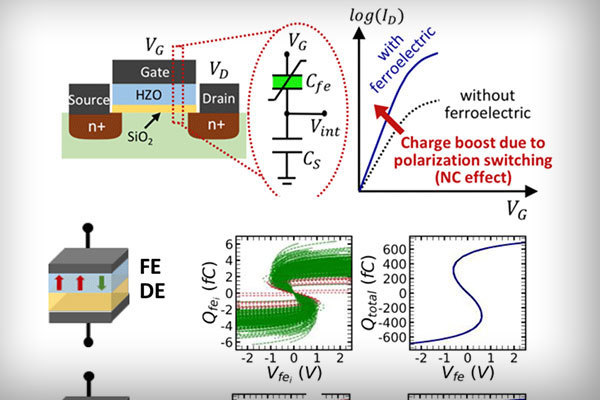
High Performance CMOS
The phenomenon of negative capacitance (NC) in the ferroelectric-dielectric (FE-DE) based gate stack can provide a novel pathway to achieving sub-60 mV/dec sub-threshold swing in Ferroelectric FETs, and therefore improving the energy-latency product of transistors.
-
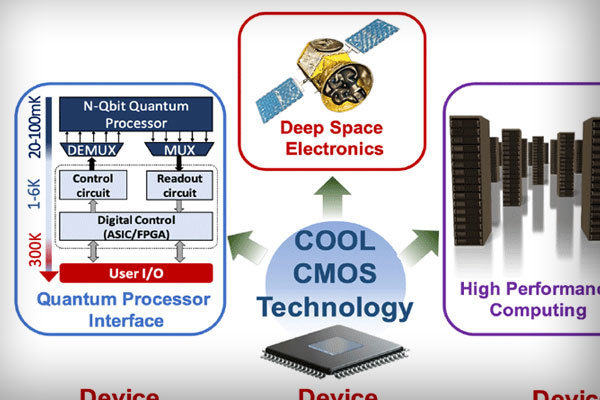
Cryogenic Computing
A novel chip-scale ultra-sensitive magnetic sensor, MagnetoElectric Flexural Gate Transistor (MEFGT) capable of measuring pico Tesla biomagnetic field and capable of operating at room temperature has been developed in this research program.
-
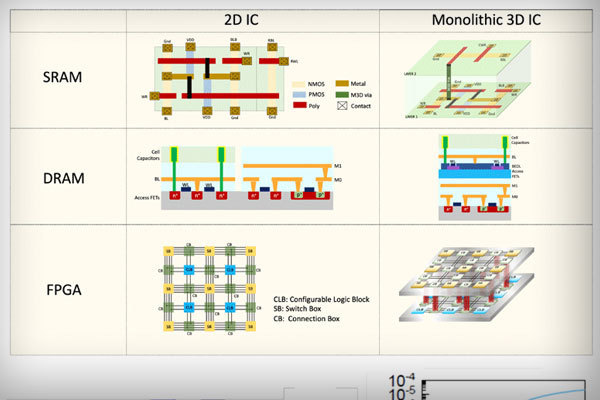
Monolithic 3D Integration
This research project focuses on radiation induced single-event upset (SEU) in emerging devices.
-
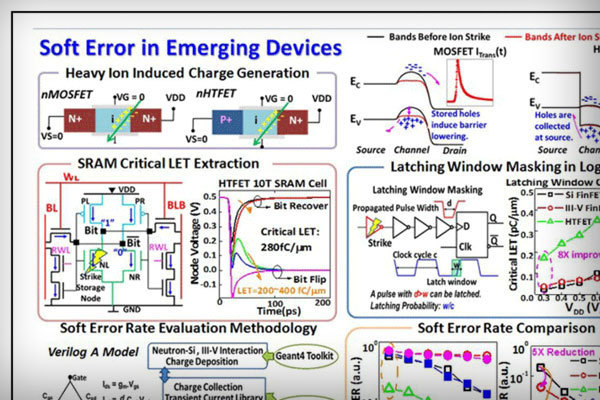
Resilient Computing in Harsh Environment
This research compares the variation handling capabilities of Silicon and III-V based novel devices.
-
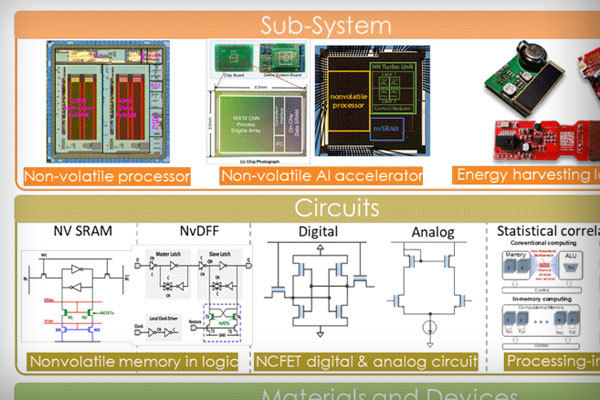
Intermittent Computing
This research project involves the investigation of ballistic electron transport properties in high ¨C mobility III-V semiconductors and further looks at how to exploit these effects to realize ultra ¨C low power logic devices.
-
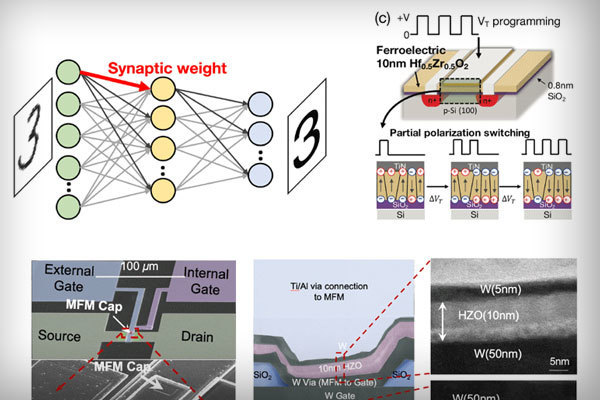
In-Memory Computing
The memory requirement of at-scale deep neural networks (DNN) dictate that synaptic weight values be stored and updated in off-chip memory such as DRAM, limiting the energy efficiency and training time.
-
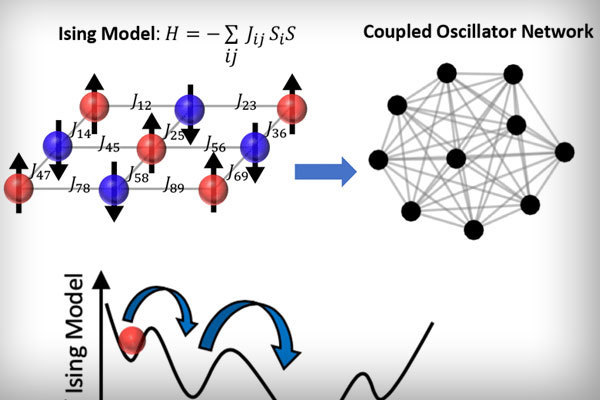
Stochastic Computing
Multiplicative stochasticity such as dropout improves the robustness and generalizability of deep neural networks.
-
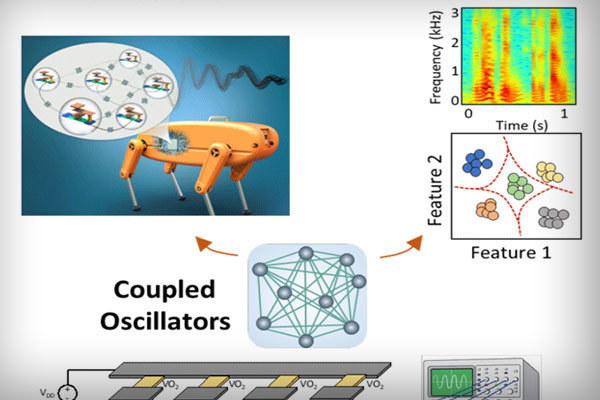
Neuromorphic & Bio-inspired Computing
Biologically inspired computing harnesses the emergent phenomena in dynamical systems such as coupled oscillator-based attractor networks for pattern generation as well as pattern classification.
-
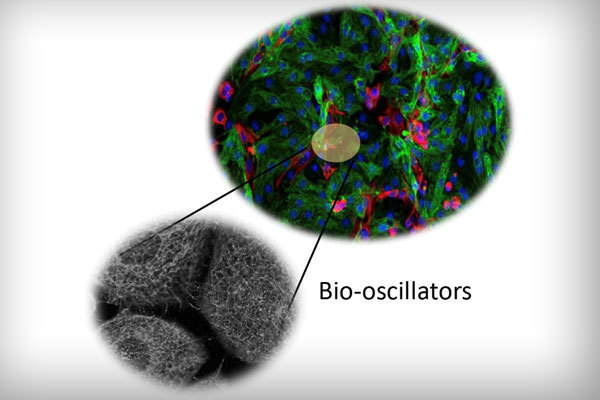
Computing using Biology
Current designs that explore biological components for biocomputing leverages the information processing units of the cells, such as DNA, gene or protein circuitries, which are inherently slow (hours to days speed).